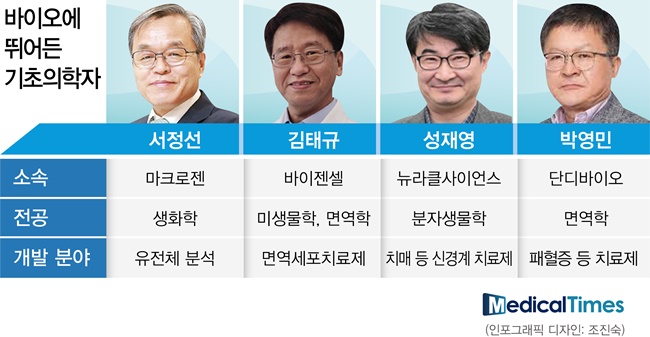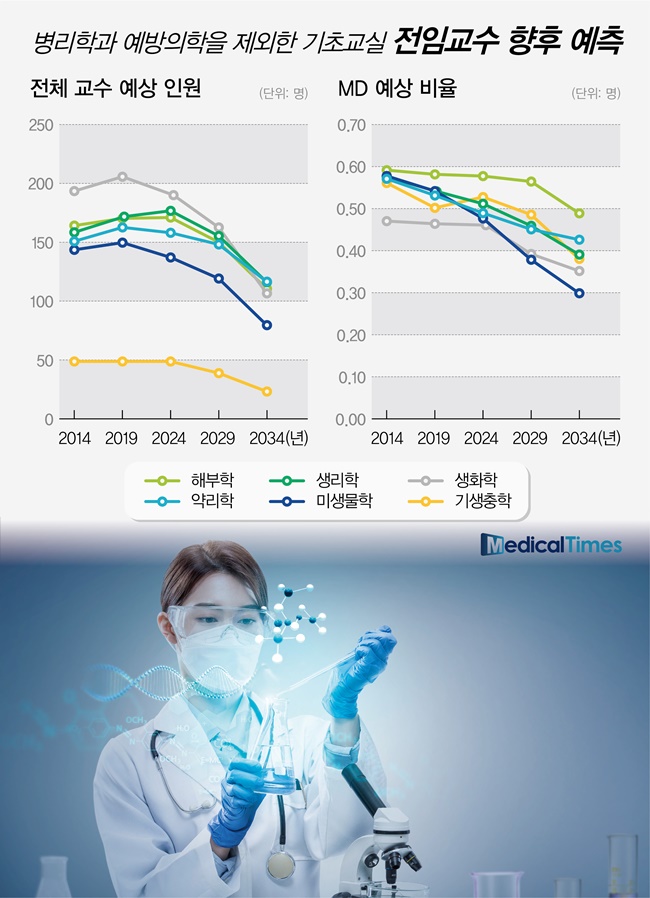DanDi Bioscience
- HOME
-
ABOUT US
-
WORK
-
PR
-
CAREERS
-
CONTACT US
-
ABOUT US
-
WORK
-
PR
-
CAREERS
-
CONTACT US
- HOME
-
ABOUT US
-
WORK
-
PR
-
CAREERS
-
CONTACT US
What’s new?
2023-01-13danbio
Professors walking in pharmaceutical/bio… Shall we reveal the 'shadow' of basic medicine?http://www.medicaltimes.com/Users/News/NewsView.html?mode=view&ID=1145178&REFERER=NP
This post has been translated from the original article dated 1/10/2022.
[Medical Times=Reporter Moon Seong-ho] While the coronavirus has been sweeping the world for three consecutive years, medical scientists from universities and research centers in the United States and Europe have collaborated with global pharmaceutical companies to develop vaccines and treatments at an unprecedented speed despite difficult conditions.
However, the Korean scientific community has been powerless over the past three years.
It is embarrassing to evaluate that the world has published a proper research paper that deserves attention while jumping into the development of a corona treatment and vaccine, always a step late.
Is that why? The importance of the 'basic medical scientist', whose presence was confirmed only in October every year when the Nobel Prize in Physiology was awarded, is growing again in the interest of pharmaceuticals and biotechnology. This is because the beginning of the development of various vaccines and treatments lies in the training of 'medical scientists' centered on basic medical scientists.
'Basic medical scientist' entering pharmaceutical/bio ventures
A basic medical scientist is a professional medical researcher who intensively studies human body functions, viruses, and disease treatment.
Eight fields are usually classified as basic medicine: microbiology, pathology, preventive medicine, and anatomy. It has been common for these basic medical scientists to focus on educating and researching medical students while living as professors at medical schools nationwide.
However, with the recent prolonged COVID-19 pandemic as a starting point, basic medical 'pioneers' who have entered the pharmaceutical and bio industries by using their majors to make use of their majors rather than staying only in education and research are drawing attention.
According to the pharmaceutical and bio industry on the 8th, although there are not many yet, there are basic medical scientists who started companies as professors in medical schools and jumped into the development of vaccines and treatments.
If we were to choose a representative figure, we would pick Seo Jung-seon, chairman of Macrogen, a first-generation bio venture.
Chairman Seo, who leads Macrogen, a bio venture specializing in genome analysis, is a basic medical scientist and is considered a pioneer who founded a bio venture with the Genomic Medicine Research Center as a starting point while serving as a professor at Seoul National University.
In addition, CEO Kim Tae-kyu of Vigencell, who received attention by listing on the domestic stock market last year, is also a basic medical scientist. Like Chairman Seo of Macrogen, CEO Kim was also a professor at the Catholic University of Medicine, and the cell therapy business group he was involved in led to the establishment of Vigencell.
CEO Kim is still faithful to the role of educating medical students as a basic medical scientist along with the operation of Vigencell, and is active across the medical and bio fields.
Regarding this, CEO Kim explained, "Rather than not being interested in clinical practice, I wanted to work on developing a more fundamental treatment rather than being faithful to the somewhat limited and prescribed role of treating patients." did.
In addition, Sung Jae-young, CEO of Newracle Science, a bio venture that is developing an antibody treatment for dementia as a subsidiary of Korea University Medical Center, is also one of the people who have recently received attention.
Having already been recognized for its technological prowess, it was xxxselected as a project for the 'pan-ministerial new drug development project' last year, and is foreseeing a challenge in the stock market with an existing pipeline and a special listing on technology this year.
In addition, Prof. Park Young-min, who is active at the Graduate School of Medicine at Konkuk University along with Dandi Bio co-CEO, is also considered one of the few basic medical scientists who founded a bio venture.

At the same time, CEO Chun Jong-sik, who served as a professor of microbiology at Seoul National University and recently moved to the position as CEO of CJ Bioscience, is also considered a successful entrepreneur as a representative bio venture.
Relatively narrow field of basic medical science 'homework'
However, experts believe that even if the importance of training basic medical scientists increases, it will be difficult to train medical scientists in a short period of time unless medical education in Korea changes. This means that no matter how important it is recognized in the pharmaceutical/bio industry, it is difficult to feel it in the medical field.
The dominant opinion is that it is difficult to train medical scientists in a short period of time as long as the medical education system that emphasizes clinical patient care capabilities rather than basic medicine is maintained for medical students.
Even if a medical student grows up to be a basic medical scientist, it is difficult to even actively engage in activities unless he is still a 'professor' in a medical school. In the end, it is pointed out that the structural limitations of the medical society are preventing the growth of medical scientists.
Vigencell CEO Kim Tae-gyu said, "In fact, in the domestic medical system as a whole, it is common for clinicians to continue their treatment activities at private practice or small and medium-sized hospitals even after completing their retirement at university." He expressed his regret.

Some complain that basic medicine is in the same position as 'pediatrics' or 'surgery', which have recently been considered as avoidable departments in the clinical field.
Compared to clinical professors, the relatively low 'salary' difference is the problem.
“We need to create conditions for young medical students to challenge basic medicine,” said a professor of basic medicine at A Medical College in Seoul who requested anonymity. It needs to be thought through," he said.
He emphasized, “For example, the Department of Thoracic Surgery struggled to remain a specialist until the Ministry of Health and Welfare provided subsidies.
Therefore, the medical community advised that the government should prioritize preparing support projects so that the basic medical community can conduct various research including bio.
Imjoo Yoo, chairman of the Korean Society of Anatomy, said, “I hope there will be a government project that provides research funds to basic researchers in medical schools across the country.”
"However, there are many researchers who are not doctors in the basic medical department of medical school. They are making a great contribution to education and research." A system needs to be established."

